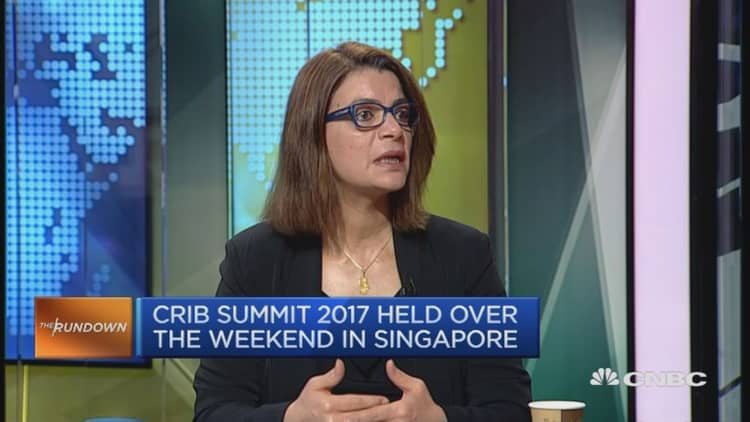
For many countries, taking steps to achieving sustainable development over the next decade has become a priority, and one scientist suggested to CNBC that having more women in scientific fields and research could speed things up.
Science is the basis for sustainable development, according to Nisreen El-Hashemite, founder and president of Women in Science International League.
"We need to empower women in science, and to achieve parity in science, if we want to transform our world in 2030," El-Hashemite told CNBC's "The Rundown."
One of the highlights of the UN's 2030 Agenda for Sustainable Development, adopted in 2015, is the importance of maximizing the potential of women and girls through access to education, economic resources, political participation and providing them equal opportunities for employment, leadership and decision-making at all levels.
El-Hashemite is a medically trained doctor and scientist and is also a member of the Iraqi royal family — her grandfather, King Faisal I, was the first king of modern Iraq.
While science and scientific research can lead to new discoveries that can help with achieving sustainable development, the field remains dominated by men.
Data from UNESCO Institute of Statistics, as of July 2015, indicated women constituted a minority in the research world, had less access to funding than men and tend to be less represented in prestigious universities and among senior faculty. This put them at a disadvantage when it comes to high-impact publishing of their research.
There is a growing gap between women studying in a science course at university level and going on to do research. UNESCO data showed globally about 53 percent of graduates in bachelor's and master's in science programs were women. But only 28 percent of researchers were women.
The report noted the share of women researchers varied geographically — while the number was high in Southeast Europe and Central Asia, it is low in the European Union, sub-Saharan Africa and South Asia.
El-Hashemite also acknowledged that the contributions of Asian women researchers are very rarely acknowledged on the global level.
"There are a lot of Asian ladies that are specialized in science, contributing to science, did great achievements and nobody heard about them around the world," she said, adding the importance of highlighting the achievement of these researchers to the international community and making them role models for future generations.


